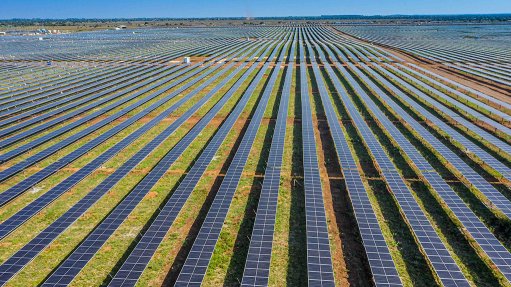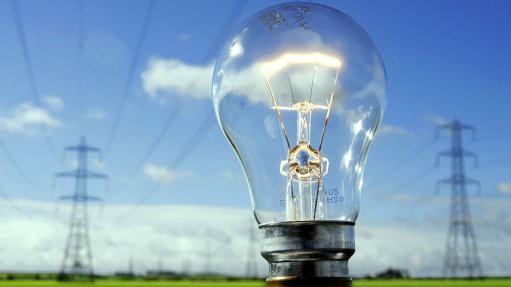Decarbonisation roadmap highlights economic benefits and international support for South Africa
Europe-Africa energy cooperation foundation Renewable Energy Solutions for Africa's (Res4Africa's) 'Decarbonisation Roadmap for South Africa' report highlights the economic benefits of modernising and decarbonising the country's economy and demonstrates the broad international financial and technical support South Africa is receiving for raising and achieving its decarbonisation ambitions.
These were some of the sentiments shared during the launch of the decarbonisation roadmap by regulators, researchers, financiers and energy industry representatives on December 7.
"The decarbonisation of South Africa's economy has taken on much significance after COP26, which was preceded by South Africa revising and aligning its Nationally Determined Contribution (NDC) with the more ambitious global approach. Decarbonisation efforts received a boost with the $8.5-billion pledge as part of the Just Energy Transition Partnership with France, Germany, the UK, the US and the European Union," said Res4Africa secretary-general Roberto Vigotti.
"South Africa is at a pivotal moment for its sustainable future. Now is the time for South Africa to take advantage of this international support and lay out clear ambitions and strategies, as well as tools to achieve the strategies, to give legitimacy to a just transition in the country," he emphasised.
South African Presidential Climate Commission head of climate mitigation Steve Nicholls highlighted the benefits afforded by South Africa raising its NDC ambitions, including reducing vulnerability to physical climate change risks and trade pressure from global trade partners
Further, a just transition strategy must take into account the change in demand for goods and services as the world aims to transition to net zero by 2050, and South Africa is vulnerable, with its top exports including coal and ferrous metals, he said.
"A more ambitious target enhances access to support. The lower bound of South Africa's NDC of 350-million tons of carbon dioxide-equivalent emissions a year is above the level deemed sufficient to ensure global warming does not increase above 1.5 °C," said Nicholls.
Additional support asked for as part of South Africa's NDC commitments will help the country drive these lower bound goals even lower, and understanding what this new lower bound will be must be part of the national dialogue on a just transition, he said.
"Our emissions goals can be achieved mostly by transitioning power generation, and investing in electric vehicles and hydrogen. To achieve the 2030 NDC objectives, it is not necessary for huge structural changes to the economy, and most modelling predicts greater changes after 2030.
The two key aspects to achieve the NDC 2030 objectives include decarbonising power generation and synthetic fuels, and laying the groundwork in other sectors of the economy to meet new demands, he said.
For example, South Africa must consider resource mobilisation as it rolls out energy infrastructure, as it will need more steel and cement, and must consider where it will get them, especially as other countries may also be mobilising resources and potentially contributing to global shortages, Nicholls said.
"South Africa will need R4-trillion of investment in renewable energy and storage technologies and associated infrastructure to transition to a net-zero economy by 2050 and a start must be made now. Massive investment is needed in renewable energy as a primary driver for 2030 emissions reductions," he said.
ECONOMIC TRANSFORMATION
South Africa is not on track to achieve the 1.5 °C goal and, among the economic bloc Group of Twenty (G20) countries, the carbon intensity of its economy is the highest and is still rising, highlighted engineering, design and advisory services company AFRY senior adviser Giuseppe De Beni. AFRY collaborated with Res4Africa on the study.
"The consequences of missing a green transition are easy to talk about, but implementing the changes to attract investors and drive change are not easy. However, South Africa should capture the opportunities presented by the decarbonisation process across all sectors of its economy," he added.
This requires that South Africa have a systemic approach that touches on power generation, transmission, residential and tertiary industries, and agricultural sectors.
"The 2030 targets of the NDC can be reached through transition in which all the different sectors contribute. This is why a green development scenario should be top of the agenda to effect a 32% reduction in emissions by 2030 and a 73% reduction by 2050, and the country must focus on the where, how and what of achieving this," he said.
The decarbonisation and liberalisation of the power sector would be a short-term enabler of a transition, and this must be combined with support interventions across all sectors to ensure their long-term sustainability, as well as a deep revision of the energy market design, said De Beni.
"This approach can also reduce poverty, inequality and the unemployment rate by creating robust new industries in all sectors," he said.
The transition of South Africa's electricity to renewable and alternative energy sources and storage is a main element and enabler of a just transition to create a new economy. This is, however, only possible if there is dialogue among all stakeholders, said energy development multinational Enel Green Power CEO Salvatore Bernabei.
He said Enel had shut down more than 11 GW of coal plants across the world and would decommission 9 GW more over the next three years. It has successfully repurposed the plants based on the needs of the local communities and stakeholders, which includes repurposing the plants, such as by installing solar photovoltaic systems, developing the plants as tourist lodges and developing them as hydrophonic warehouses.
The company also engaged with contractors who had worked on the coal plants, and worked on training them and developing new capabilities to reskill people. These reskilled contractors are then invited to install or work on renewable plants and build new grids, including transmission and distribution.
Enel signalled that its expertise was at South Africa's disposal to advise on shutting down coal plants while sustaining local economies.
"Help for South Africa from the international community will materialise as a combination of financial and technical support to enable a just transition. The international community has shown its willingness to help South Africa," said Bernabei.
"If Africa were to follow the same fossil-fuel-based developmental path of developed countries, it would negate efforts to stop climate change. The challenge that must be met is how to power Africa," said European Commission Climate Action director-general Raffaele Mauro Petriccione.
South Africa is in the unique context of having abundant energy resources in the form of coal as well as a serious energy crisis while also having some of the most significant wind and solar potential on the continent, he said.
"Work is required throughout the energy system and consistently over time to make a renewable and green energy system the heart of the economy, and which is capable of creating new jobs from more energy to power the economy. The Just Energy Transition Partnership can serve as a model or blueprint for supporting a just transition in a developing country in Africa. The initiative is also of great interest to countries and regions such as India, Indonesia and Latin America and is therefore important in the fight to stop climate change," said Petriccione.
Comments
Announcements
What's On
Subscribe to improve your user experience...
Option 1 (equivalent of R125 a month):
Receive a weekly copy of Creamer Media's Engineering News & Mining Weekly magazine
(print copy for those in South Africa and e-magazine for those outside of South Africa)
Receive daily email newsletters
Access to full search results
Access archive of magazine back copies
Access to Projects in Progress
Access to ONE Research Report of your choice in PDF format
Option 2 (equivalent of R375 a month):
All benefits from Option 1
PLUS
Access to Creamer Media's Research Channel Africa for ALL Research Reports, in PDF format, on various industrial and mining sectors
including Electricity; Water; Energy Transition; Hydrogen; Roads, Rail and Ports; Coal; Gold; Platinum; Battery Metals; etc.
Already a subscriber?
Forgotten your password?
Receive weekly copy of Creamer Media's Engineering News & Mining Weekly magazine (print copy for those in South Africa and e-magazine for those outside of South Africa)
➕
Recieve daily email newsletters
➕
Access to full search results
➕
Access archive of magazine back copies
➕
Access to Projects in Progress
➕
Access to ONE Research Report of your choice in PDF format
RESEARCH CHANNEL AFRICA
R4500 (equivalent of R375 a month)
SUBSCRIBEAll benefits from Option 1
➕
Access to Creamer Media's Research Channel Africa for ALL Research Reports on various industrial and mining sectors, in PDF format, including on:
Electricity
➕
Water
➕
Energy Transition
➕
Hydrogen
➕
Roads, Rail and Ports
➕
Coal
➕
Gold
➕
Platinum
➕
Battery Metals
➕
etc.
Receive all benefits from Option 1 or Option 2 delivered to numerous people at your company
➕
Multiple User names and Passwords for simultaneous log-ins
➕
Intranet integration access to all in your organisation


















